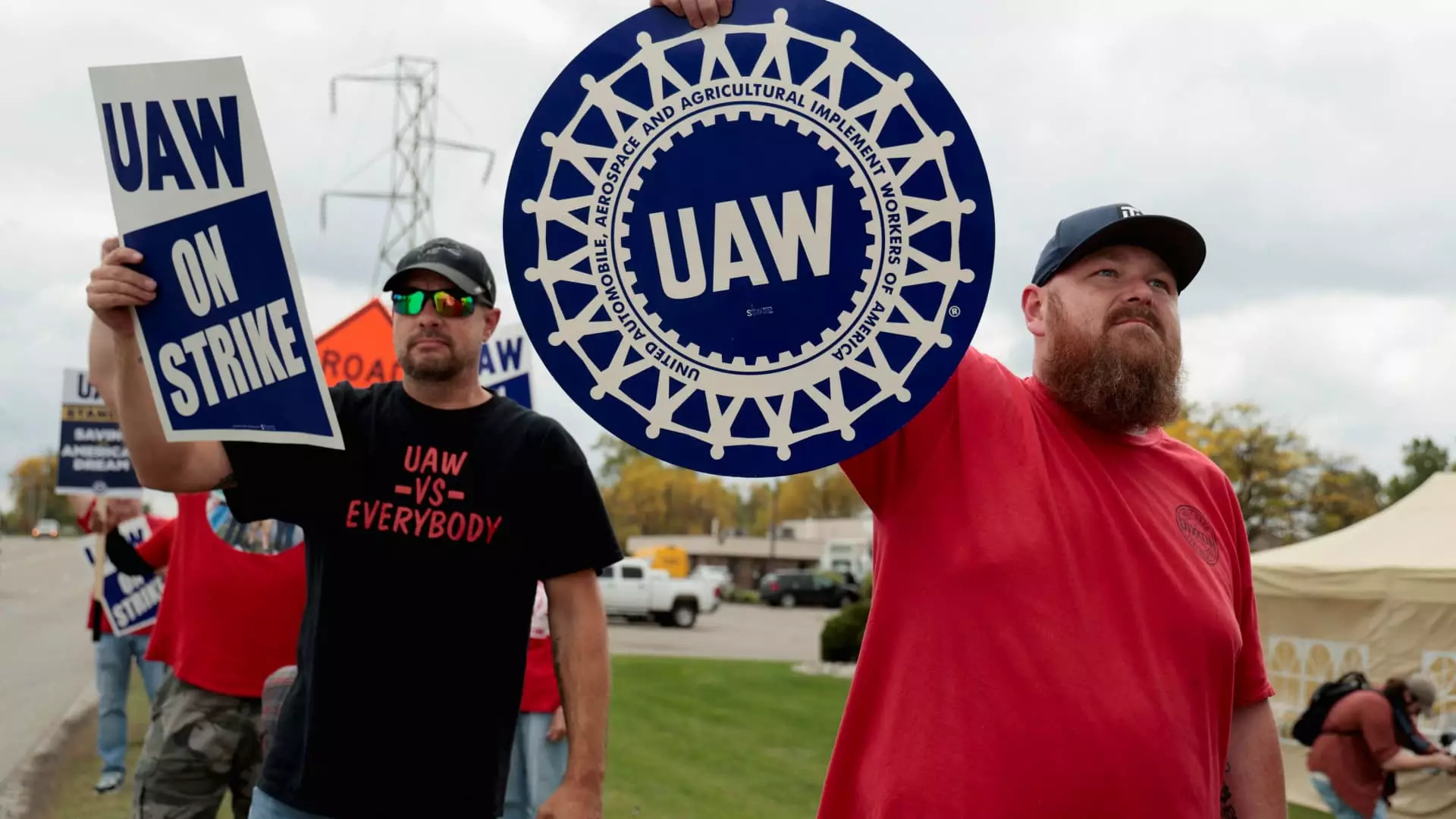Republican governors in six states, including Alabama, Georgia, Mississippi, South Carolina, Tennessee, and Texas, have expressed their disapproval of the United Auto Workers’ (UAW) campaign to unionize automotive factories in the South. They argue that the union’s efforts could potentially lead to layoffs and discourage future investments in the region. The joint statement issued by the governors highlights their concerns about the negative impact of unionization on the automotive manufacturing industry in their respective states.
The governors, led by Tennessee Governor Bill Lee, have raised concerns about the long-term implications of the UAW’s organizing efforts. They point out that while the union may negotiate record contracts with automakers like General Motors, Ford Motor, and Stellantis, these agreements could result in layoffs and hinder investments in the industry. The statement emphasizes the importance of preserving good-paying jobs in the states and warns that unionization could jeopardize the automotive manufacturing sector.
In response to slowing market conditions and the shift towards electric vehicles, automakers have been implementing cost-cutting measures to remain competitive. Stellantis, formed through a merger between Fiat Chrysler and PSA Groupe, has led the way in restructuring its operations. The company has reportedly laid off over 1,000 supplemental workers this year, citing the need to operate efficiently in challenging market conditions.
Job Losses in the Automotive Industry
While the UAW has secured favorable contracts for its members with major automakers, the industry has still experienced layoffs and buyouts. Ford and GM have offered voluntary buyouts to their workers, resulting in layoffs at various plants. For example, GM laid off 1,300 workers in Michigan due to the end of vehicle production at two plants. Despite these challenges, some workers have been transferred to other facilities to mitigate job losses.
The Republican governors’ statement reflects a broader political opposition to unionization efforts in the South. Governor Lee and his counterparts in other states view organized labor as a threat to the economic prosperity of their regions. They believe that unionization could lead to job losses and discourage future investments in the automotive sector. The governors have taken a stand against the UAW’s organizing drive, signaling their commitment to protecting the interests of their states’ residents.
The conflict between Republican governors and the UAW over unionizing automotive factories in the South highlights the complex dynamics of labor relations in the industry. While the UAW seeks to secure better wages and working conditions for its members, automakers and state leaders are concerned about the potential impact of unionization on jobs and investments. As the debate continues, it remains to be seen how the ongoing organizing efforts will shape the future of the automotive manufacturing sector in the Southern states.


Leave a Reply